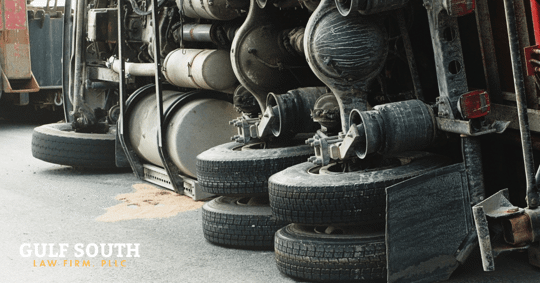Truck accidents can be devastating, causing severe injuries and extensive property damage. Understanding why truck accidents are more dangerous than car accidents is crucial for both drivers and victims. In this blog post, we will explore the key factors that contribute to the increased danger of truck accidents and provide useful tips to help you stay safe on the road.
Size and Weight Disparity
One of the most obvious distinctions between trucks and cars lies in their size and weight. Commercial trucks, especially tractor-trailers, can weigh up to 80,000 pounds, dwarfing the average car that weighs around 4,000 pounds. This substantial weight discrepancy means that in a collision, the force exerted by a truck is disproportionately greater, resulting in catastrophic damages to both property and human life.
Longer Stopping Distances
Due to their massive size and weight, trucks require significantly more distance to come to a complete stop compared to cars. When a truck driver needs to brake suddenly or encounters a hazardous situation, the extended stopping distance becomes a critical factor. This limitation increases the likelihood of rear-end collisions, especially if the truck is traveling at high speeds. The reduced maneuverability of trucks adds to the complexity of avoiding accidents, further amplifying the risks involved.
Limited Visibility and Blind Spots
Another crucial aspect that contributes to the danger of truck accidents is the limited visibility experienced by truck drivers. Large trucks have substantial blind spots, commonly referred to as "no-zones," where the driver's vision is obstructed. These blind spots exist on the sides, rear, and front of the truck, making it difficult for the driver to spot smaller vehicles nearby. This inherent visibility challenge increases the chances of accidents, especially during lane changes, merging, and turning maneuvers.
Fatigue and Driver Error
The nature of the trucking industry places significant demands on drivers, often leading to fatigue and exhaustion. Truck drivers may be subject to long hours, tight deadlines, and irregular sleep patterns, all of which increase the risk of driver error. Fatigue impairs a driver's reaction time, decision-making abilities, and alertness, significantly raising the likelihood of accidents. Additionally, the increased time spent on the road can contribute to distracted driving behaviors, such as cellphone use or eating while driving, further compromising safety.
Specialized Training and Maintenance
Driving a truck requires specialized skills and training due to the unique challenges presented by operating such a large vehicle. While passenger car drivers must meet specific licensing requirements, truck drivers must undergo additional training and obtain commercial driver's licenses (CDLs). Despite these measures, inadequate training and maintenance can still contribute to accidents. Improper loading and securing of cargo, worn-out brakes, or inadequate vehicle inspections can all lead to truck malfunctions and accidents that have severe consequences.
In case of an accident, Gulf South Law Firm is here to provide expert legal assistance and ensure your rights are protected.

